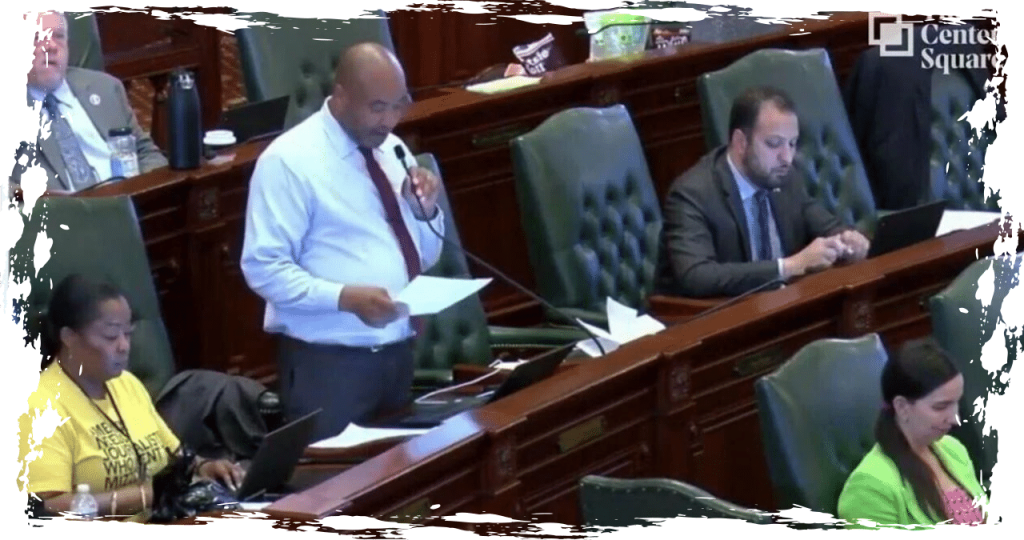A new bill passed by the Illinois General Assembly will grant drivers the ability to receive up to three unpaid traffic tickets per year without facing a license suspension.
After facing criticism earlier this year, state Rep. Justin Slaughter decided not to pursue a contentious traffic stop bill that aimed to prevent officers from pulling over individuals who were speeding up to 25 miles per hour over the posted speed limit. However, Slaughter managed to pass a modified version of the bill as House Bill 277. The Chicago Democrat explained that he believes the existing law is unjust for those who commit traffic violations and can potentially jeopardize their employment.
According to Slaughter, HB277 aims to update our procedures for individuals who receive tickets for minor traffic offenses and fail to appear in court. He highlights that the current law allows judges to suspend a person’s driver’s license if they do not show up in court. However, he argues that this process poses a significant challenge for individuals who are already at risk and trying to maintain their employment. Therefore, the proposed bill seeks to address this issue from a fairness and equity standpoint.
State Representative Patrick Windhorst, a Republican from Harrisburg, raised concerns about the potential implications of the proposed bill if it were to be enacted into law. He emphasized that if violators have no incentive to pay their tickets, it could pose serious challenges for local governments.
According to Windhorst, the current law states that if someone fails to pay a traffic ticket, their license will be suspended. This serves as a strong motivation for individuals to promptly settle their fines. However, if this proposed law is enacted, individuals would be allowed to accumulate three unpaid tickets before facing license suspension. As a result, it would create a significant disincentive for people to pay their fines to the local government until they reach the third ticket.
Slaughter successfully passed HB 277 and it is now ready to be sent to the governor. Windhorst highlighted the fact that local governments will experience a direct impact on their budgets as a result of the new provision allowing traffic violators to have up to three unpaid tickets per year before their license is suspended.
According to Windhorst, he believes that this change will ultimately result in a decrease in revenue for local governments, which will have a significant impact on their budgets. Consequently, he cannot lend his support to this proposed alteration.
According to Slaughter, his bill ensures that traffic violators face appropriate consequences without jeopardizing their employment.
“This bill is primarily aimed at preserving people’s jobs. Let’s lend a helping hand to those who are most marginalized and vote ‘yes’,” expressed Slaughter.
Slaughter decided to withdraw his initial bill addressing traffic violations. House Bill 4603, if it had not been pulled, would have barred police officers from stopping individuals with tinted windows and expired license plates. Additionally, it would have prevented officers from pulling over those who failed to use a turn signal or made improper lane changes.
In 2019, Chicago relied on traffic ticket collections to generate over $260 million annually, providing much-needed support for the city’s struggling budget. However, in an effort to promote fairness, Chicago has scaled back on these collections. Under Slaughter’s proposed bill, all municipalities will be required to postpone ticket collections until a violator has accumulated three unpaid tickets within a year. This measure aims to address the issue of equity in ticket enforcement.
